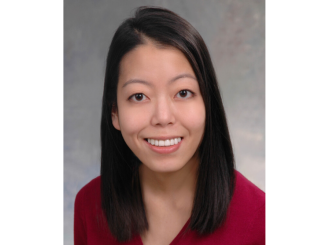Apr 24, 2020
By Geraldine Carroll, ASCO Publishing
Participants in the ASCO Journals Editorial Fellowship learn about the entire process of academic publishing, from article submission through editorial and peer review to publication, by shadowing experienced journal editors.
Soo Park, MD, an editorial fellow with JCO Precision Oncology, has been using her editorial skills in her hematology research as an assistant clinical professor at the University of California, San Diego (UCSD). She is also a staff physician at the VA Hospital in San Diego. Dr. Park shares how the editorial fellowship influences her work today, and the lessons she learned that have helped shape her budding career as a physician and academic investigator.
How has the ASCO Journals Editorial Fellowship influenced your work today?
SP: I have a clinical interest in blood cancers. I work within a university environment and have a professorship position because I really want to be involved in teaching new physicians. I was fortunate enough to continue some of the research I had been doing as a fellow in my current position. That’s another reason I decided to remain in academia, so I could continue my research and pursue other avenues in cancer care.
I am currently studying the epigenetic marks associated with treatment response to hypomethylating agents in a blood cancer known as myelodysplastic syndrome. We are now analyzing the data that has been generated and hopefully we will be able to publish our work later this year.
Scientific publishing is crucial to building a career in oncology and I am using the skills that I learned as an editorial fellow for JCO PO. Writing concisely and succinctly, formatting correctly, organizing the paper’s findings so my paper reads well—this enhances my research and clearly states what I am trying to convey to the scientific community. These are just some of the skills I use in my work each day. I used my fellowship experience to craft my own research paper which I plan to submit to journals that cover blood cancers.
Did you see any of the lessons learned in the editorial fellowship reflected in your experience at the ASCO Annual Meeting?
SP: Yes, the fellowship certainly enhanced my Annual Meeting experience. The meeting introduced me to new things in oncology that are moving the field forward. I was able to attend, along with the other editorial fellows, a session that covered how to write an effective manuscript. That session was the perfect summary of everything I learned during my fellowship—the entire process from submission to publication—and it was really beneficial to hear it again. Since then, I have become more skilled at analyzing studies, especially the nuances and the importance of explaining the science in a way that a general audience will understand so you’re not using too much jargon.
What was the best advice you received at the ASCO Annual Meeting?
SP: Don’t let anyone tell you that you can’t do something!
Read more perspectives from editorial fellows on ASCO Connection.

